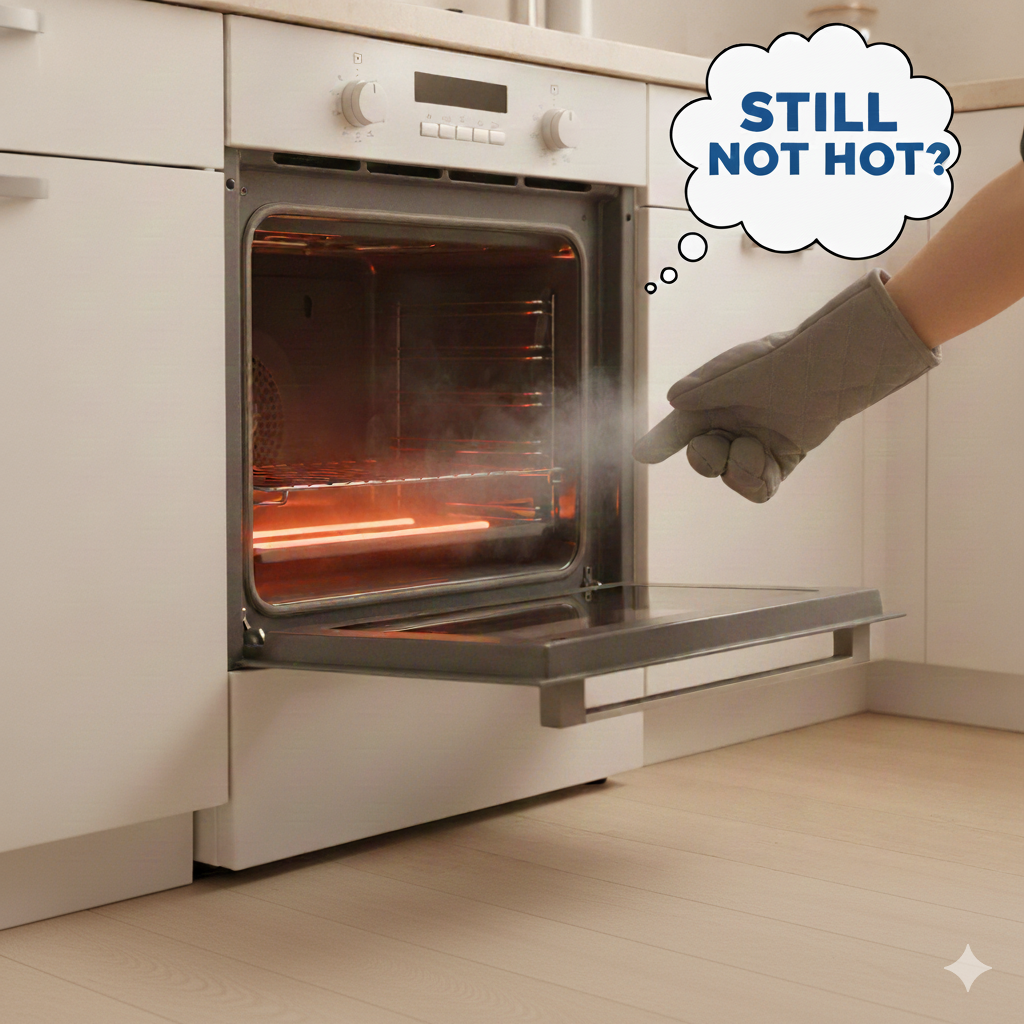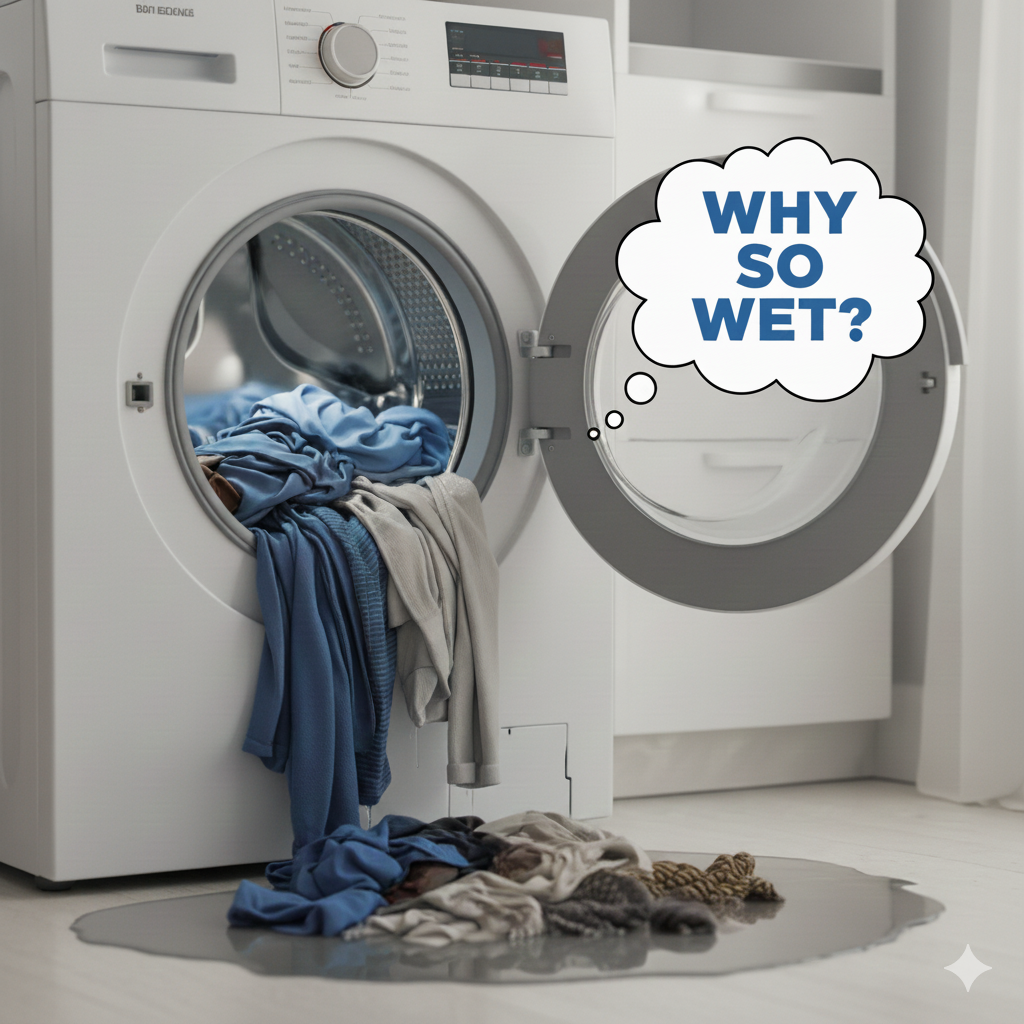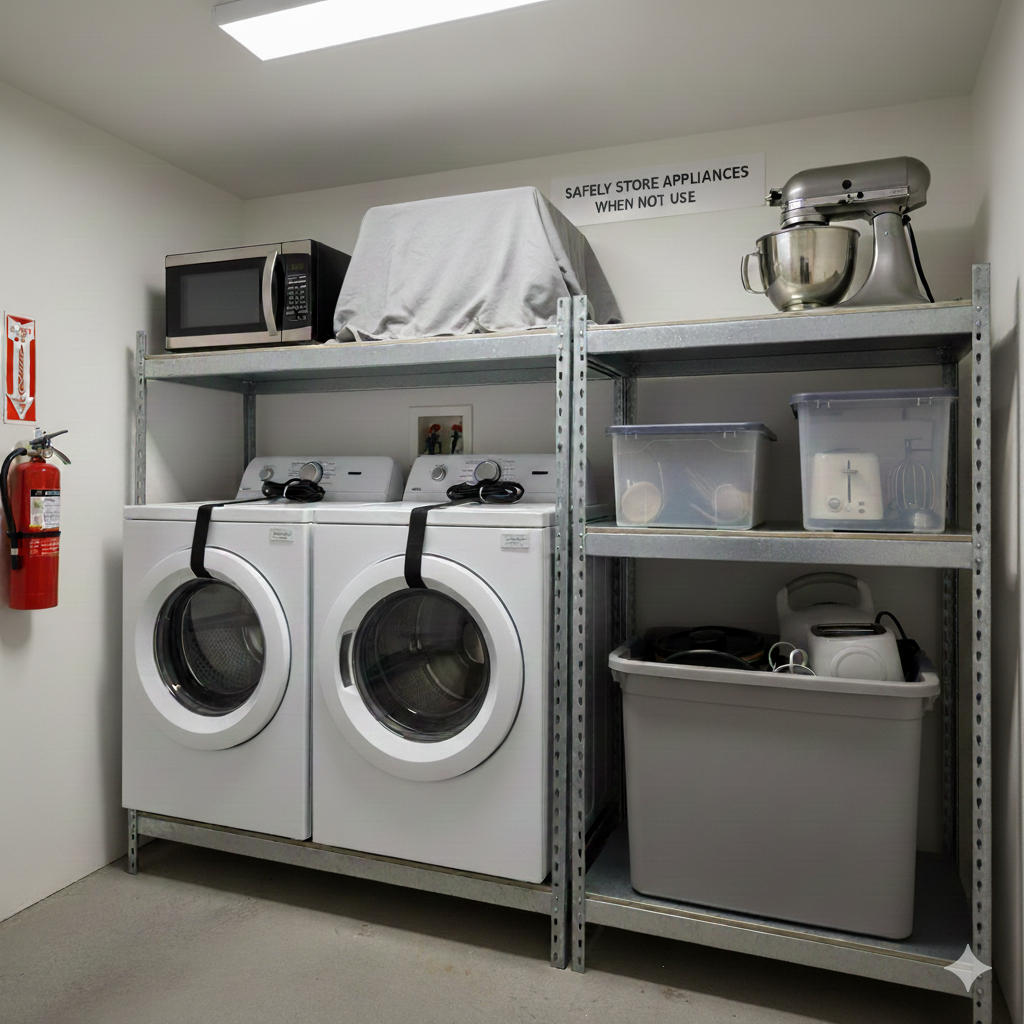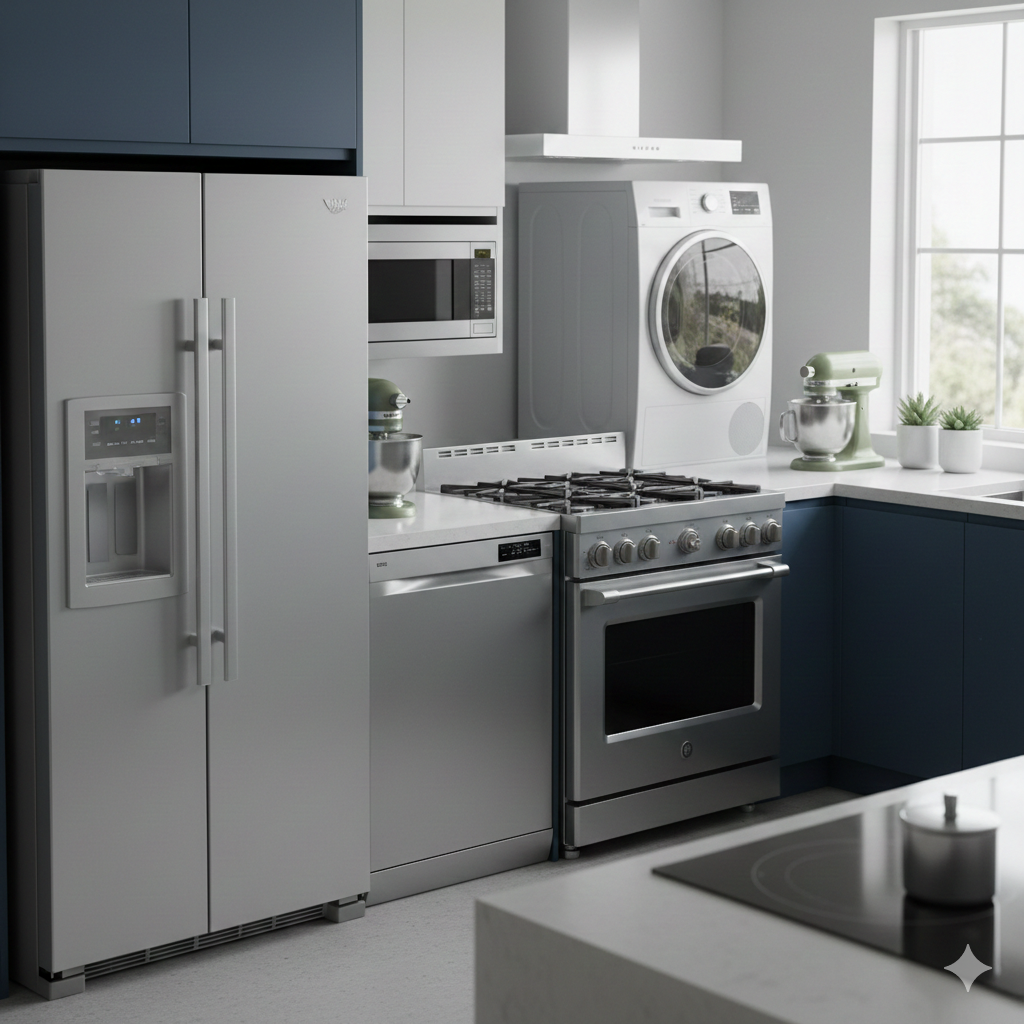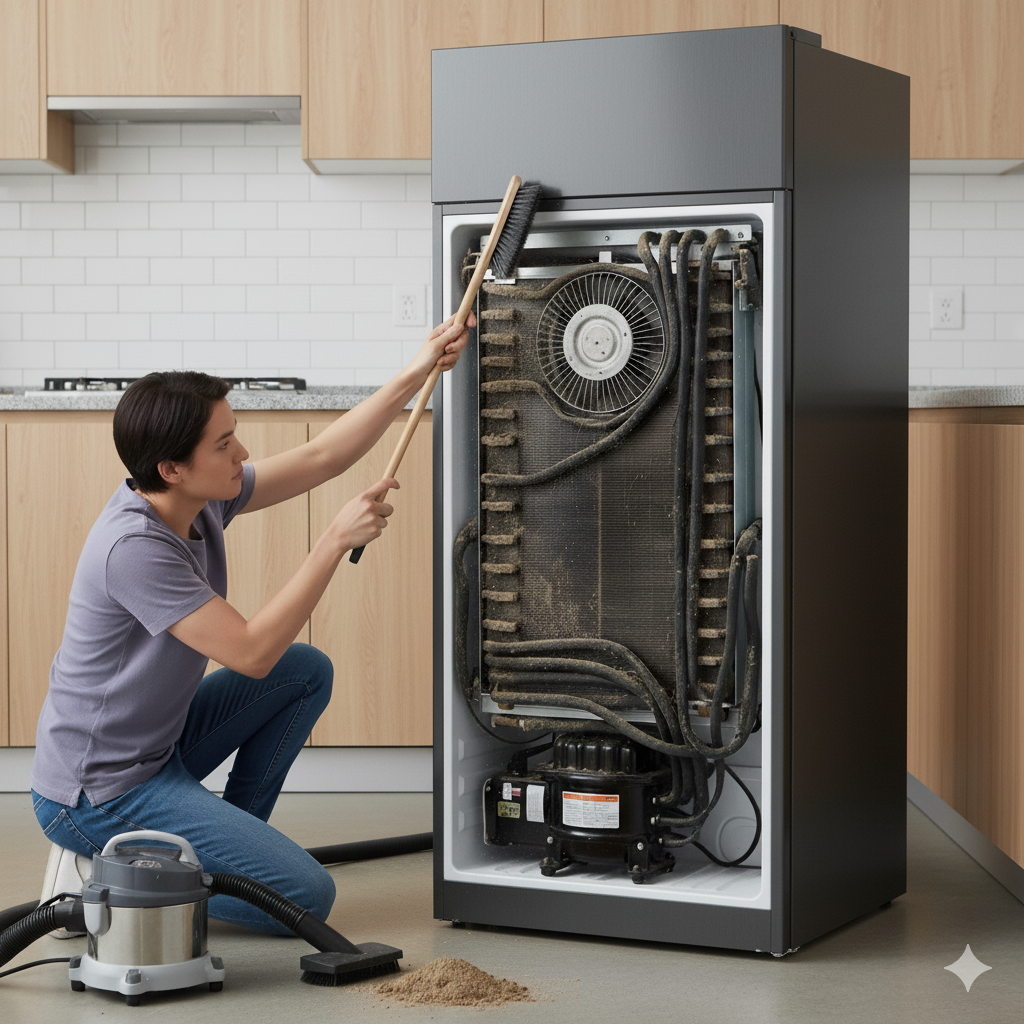At North Vancouver Appliance Repair, we've been helping homeowners across North Vancouver and West Vancouver keep their kitchens running smoothly for years. One of the most common calls we get is about dishwashers suddenly turning into noisy beasts—grinding, buzzing, rattling, or thumping away like they're auditioning for a rock band. If your dishwasher has started making strange noises, don't panic just yet. It's often a sign of something simple, but ignoring it can lead to bigger problems down the line, like leaks or complete breakdowns.
In this guide, we'll break down the most frequent culprits behind those odd sounds, explain what they mean, and share practical steps to troubleshoot and fix them. We'll draw from our experience fixing hundreds of dishwashers from brands like Bosch, LG, Samsung, Whirlpool, and more. By the end, you'll know when it's a quick DIY fix and when it's time to call in the pros—like our insured technicians who offer next-day service and a solid 6-month warranty on repairs.
Understanding Normal vs. Abnormal Dishwasher Sounds
First things first: not all dishwasher noises are bad. Modern dishwashers are designed to be quiet, but you'll still hear some expected sounds during a cycle. A gentle hum from the motor, swishing water spraying from the arms, or a low buzz when draining are all part of normal operation. These usually clock in under 50 decibels—quieter than a normal conversation.
But when the noise shifts to something loud, persistent, or unusual—like a high-pitched squeal, rhythmic knocking, or harsh grinding—that's your cue something's off. Strange noises often point to blockages, worn parts, or installation issues. Addressing them early can save you from costly water damage or a full replacement.
Common Types of Dishwasher Noises and Their Causes
Let's dive into the sounds we hear most often in our service calls. We'll match each noise to likely causes, based on real repairs we've done in homes from Lynn Valley to Ambleside.
Related: How to Fix a Dishwasher That Won’t Start
1. Grinding or Scraping Noises
That awful grinding sound, like metal on metal, is a red flag. It typically happens during the wash or drain cycle and is caused by something hard getting caught in the chopper blade or pump. Think broken glass, popcorn kernels, fruit pits, or even a stray bone from last night's dinner. These bits jam the chopper assembly, which is meant to pulverize food scraps before they hit the drain.
Another culprit? A worn-out circulation pump or impeller. The impeller pushes water through the spray arms, and if its bearings fail or it gets damaged, you'll hear grinding as it struggles.
We've seen this in older Bosch and GE models where debris builds up over time. In one recent job in Deep Cove, a customer's dishwasher was grinding because a glass shard had lodged in the pump—easy fix once we cleared it.
2. Buzzing or Humming Noises
A loud buzz or constant hum often comes from the drain pump working overtime. If food particles, grease, or small objects block it, the pump vibrates excessively. This is common at the start or end of cycles when water is draining.
It could also be the water inlet valve. This part lets water in, and over time, mineral buildup from hard water (a big issue in the North Shore) causes it to buzz or whistle as water forces through a narrowed opening.
Dry seals in new or rarely used dishwashers can cause initial buzzing too—running a cycle with a bit of water added usually sorts it. But if it's persistent, we've replaced many faulty valves in LG and Samsung units to silence the hum.
Related: How to Maintain Your Dishwasher for Long-Term Performance
3. Rattling or Clanging Sounds
Rattling is usually the simplest fix: loose dishes or utensils. Lightweight plastics can shift and bang around, or a fork might dangle and hit the spray arm. Overloading racks is a frequent offender—dishes too close together vibrate against each other.
On the mechanical side, a loose spray arm or detached bearing ring can rattle as it spins. We've fixed this in KitchenAid dishwashers where the arm clips had worn out.
4. Thumping, Knocking, or Banging Noises
Thumping often means the spray arm is hitting something—a tall pot blocking its path or a loose item inside. Rhythmic knocking could be water hammer in your pipes, where sudden valve closures create shockwaves.
A loose drain hose banging against cabinets is another common one we see during installations or moves.
5. Squealing or High-Pitched Whining
Squeals point to bearings wearing out in the motor or pump. Friction builds as parts rub without proper lubrication. In Whirlpool models, we've replaced circulation pumps for this exact issue.
A failing water inlet valve can also whine as it struggles to open fully.
Step-by-Step Troubleshooting Guide
Before calling us at North Vancouver Appliance Repair, try these safe DIY steps. Always unplug the dishwasher and turn off the water supply first!
- Run an Empty Cycle: Load nothing and listen. If the noise persists, it's not dishes—likely a mechanical issue.
- Check Loading: Rearrange items. Face dishes downward, secure utensils, and ensure spray arms spin freely. Avoid overloading.
- Inspect the Filter and Chopper: Most models have a removable filter at the bottom. Twist it out, rinse under hot water, and check for debris. Access the chopper by removing the lower rack and spray arm—clear any gunk with tweezers.
- Clean Spray Arms: Remove them (they usually pop off) and flush holes with a toothpick or running water. Blockages here cause imbalance and noise.
- Examine the Pump Area: If comfortable, tilt the dishwasher (after disconnecting) to check for loose parts or objects in the sump.
- Test Water Fill: Low water pressure can make pumps strain. Ensure your home's water valve is fully open.
If these don't quiet things down, stop—further tinkering risks damage or voids warranties.
Prevention Tips to Keep Your Dishwasher Quiet
An ounce of prevention keeps your dishwasher humming smoothly. Scrape plates before loading to minimize debris. Run hot water at the sink first for better cleaning and less strain. Clean the filter monthly and use a dishwasher cleaner like Affresh quarterly. In our hard-water area, consider a water softener to reduce mineral buildup.
Regular maintenance extends life—many of our customers avoid noise issues altogether with these habits.
When to Call Professional Appliance Repair
If the noise persists after troubleshooting, or if you notice poor cleaning, leaks, or error codes, it’s time to bring in experts. At North Vancouver Appliance Repair, we’ve seen it all—worn-out bearings, seized pumps, even dishwashers installed at a tilt causing pipes to knock. These need specialized tools and know-how to fix safely.
For instance, a West Vancouver client called us about a persistent squeal in their Miele dishwasher. We found a failing circulation pump, replaced it in under an hour, and had them back to spotless dishes the same day. Our 6-month warranty gave them peace of mind, too.
Ignoring noises can lead to bigger headaches. A blocked pump might cause water to back up, flooding your kitchen. Worn parts strain the motor, risking burnout. Don’t wait for a small noise to become a big bill.
Why Choose North Vancouver Appliance Repair?
When DIY isn’t enough, you need a team you can trust. At North Vancouver Appliance Repair, we’re local, insured, and obsessed with getting your appliances back in top shape. Our technicians are trained on all major brands, from Frigidaire to high-end Miele, and we carry common parts to fix issues fast—often on the first visit. With next-day service and a 6-month warranty, we’re here to make your dishwasher quiet and reliable again.
Strange noises don’t have to mean a new dishwasher. Most issues are fixable with the right approach. Try our troubleshooting steps, keep up with maintenance, and call us when you need a pro. Your kitchen deserves to run smoothly, and we’re here to make that happen.






